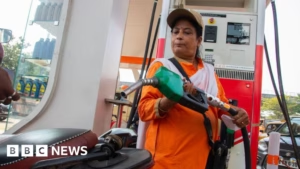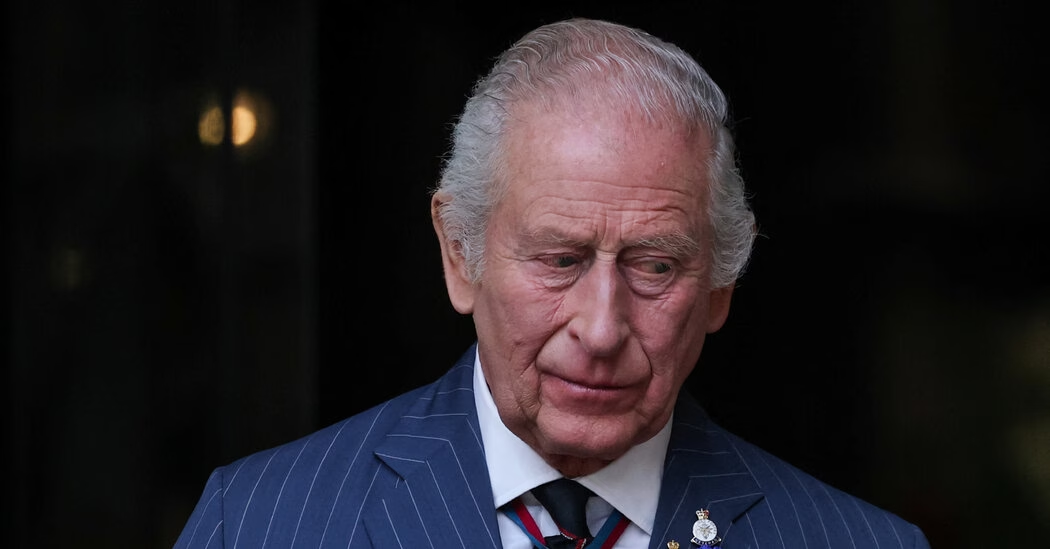This past week, King Charles III was immersed in commemorating the 80th anniversary of the Allied victory over Nazi Germany and gearing up for a trip to Canada to open its parliament later this month. However, his public engagements were once again overshadowed by a highly-publicized outburst from his estranged son, Prince Harry.
This has become the standard operating procedure for the 76-year-old monarch. Two years into his reign, it is unfolding as both eventful yet oddly consistent in its central narrative — that of a harried parent overseeing a tumultuous family.
Harry’s emotional plea for reconciliation with his family, voiced in a recent BBC interview, has reignited the bitter divisions within the Royal family, which remains unsteady in the fledgling Carolean era.
Rest assured, the King has been active. Despite receiving weekly cancer treatments diagnosed last year, he traveled extensively to France, Australia, Poland, and Italy. He made time for curating a playlist for Apple Music featuring artists like Kylie Minogue and Bob Marley, hosted state banquets, and posed for portraits.
Nevertheless, Harry’s comments, following his legal failure concerning his security arrangements in Britain, reignited the schism that opened in 2020 when he and his wife, Meghan, stepped away from royal duties and moved to California.
Some royal observers warn that if Charles fails to mend the rift, it could define his reign, undermining the messages of tolerance and inclusiveness that he tirelessly advocates for.
“When history records the King’s reign, his inability to manage family disputes will leave a tarnished legacy,” said Peter Hunt, a former royal correspondent for the BBC. “He represents an institution built on family unity and forgiveness, but he cannot even reconcile with his own kin.”
Buckingham Palace has chosen not to comment on the King’s relationship with his son. However, they contested Harry’s assertion in the BBC interview that his father could have done more to safeguard him from losing automatic, public-funded police protection during his visits to Britain.
“All these issues have been thoroughly examined by the courts, leading to the same conclusion each time,” a Palace spokesperson stated, in an unusually pointed response.
An appeals court ruled in May that the government’s decision to deny Harry automatic protection — after he ceased being a working royal — was justified. He expressed concerns about safeguarding his family without it.
The Palace called on journalists to avoid focusing on the family drama during V-E Day commemorations. This, however, had the effect of prolonging the spotlight on Harry, according to Mr. Hunt.
“This is a private matters, but they are utilizing the full force of the institution to counter him,” Mr. Hunt remarked.
Harry’s estrangement from not only his father but also his older brother, Prince William, paints a picture of a divided and diminished family. The royal family’s presence on the balcony of Buckingham Palace to watch a flyover of war planes was noticeably sparse.
The King’s younger brother, Prince Andrew, remains in internal exile following a controversy concerning his connections with the convicted sex offender, Jeffrey Epstein. Andrew’s past resurfaced with the death of Virginia Giuffre, a woman linked to him by Epstein, with whom he settled a sexual abuse claim. Her family reported she died under suspicious circumstances in Australia.
For William, the absence of Harry and Andrew, combined with his father’s illness, has pushed him into a more prominent public sphere.
He has met with former U.S. President Trump at the reopening of Notre Dame Cathedral in Paris, participated in a tank maneuver during a visit to British troops in Estonia, and represented his father at Pope Francis’s funeral. Just days prior, Charles and Queen Camilla had met with Francis at the Vatican.
“William has often been seen as disengaged, but now he seems to be gravitating towards larger, more media-friendly events, showcasing his growth as a statesman,” noted Mr. Owens, the historian.
William is deeply engaged in a program tackling homelessness across several British and Northern Irish cities. Like his father, he remains steadfast in his commitment to climate change, though both have adjusted their stance as climate targets become politically sensitive.
The heir to the throne made headlines with the British public when he provided shrewd sports commentary before a Champions League match, earlier this month, between his favorite team, Aston Villa, and Paris Saint-Germain. A co-host, Rio Ferdinand, jokingly suggested he could take over the commentary job.
Despite expressing no immediate desire for his father’s role, concerns about the King’s health have made succession discussions unavoidable. In late March, Charles briefly hospitalized following a reaction to his medication. The palace downplayed the incident as a minor setback, but it prompted concerns at British news outlets, for whom the death of a monarch triggers extensive coverage.
The King’s schedule shows no sign of slowing down. If anything, he has embraced his duties with an enthusiasm that royal observers see as either a sign of robust health or a man aware of his limited time.
When he opens Canada’s parliament on May 27, it will be far from a routine royal visit. As King of Canada, he will symbolize Canadian sovereignty amid calls from former U.S. President Trump for Canada to become the 51st state of the U.S.
Indeed, Charles relishes his role as a champion of British influence. He recently hosted President Volodymyr Zelensky of Ukraine and sent an invitation to Mr. Trump for another state visit to Britain.
However, royal observers argue his illness has limited his efforts to implement the kind of reforms to the British monarchy many anticipated following his coronation.
“The momentum for change has been lost from him,” Mr. Owens noted.
Source: https://www.nytimes.com/2025/05/11/world/europe/charles-harry-royal-family-crisis.html

